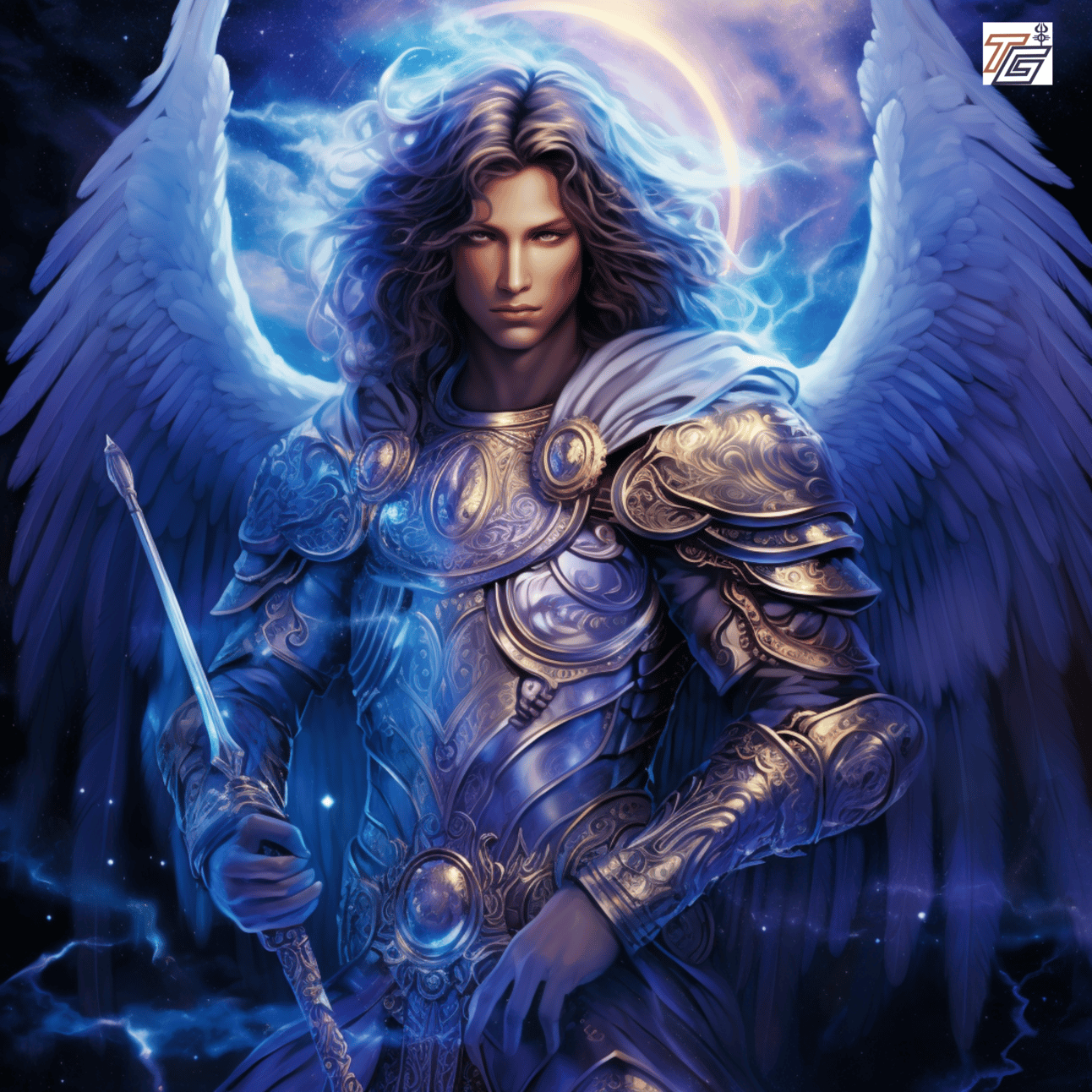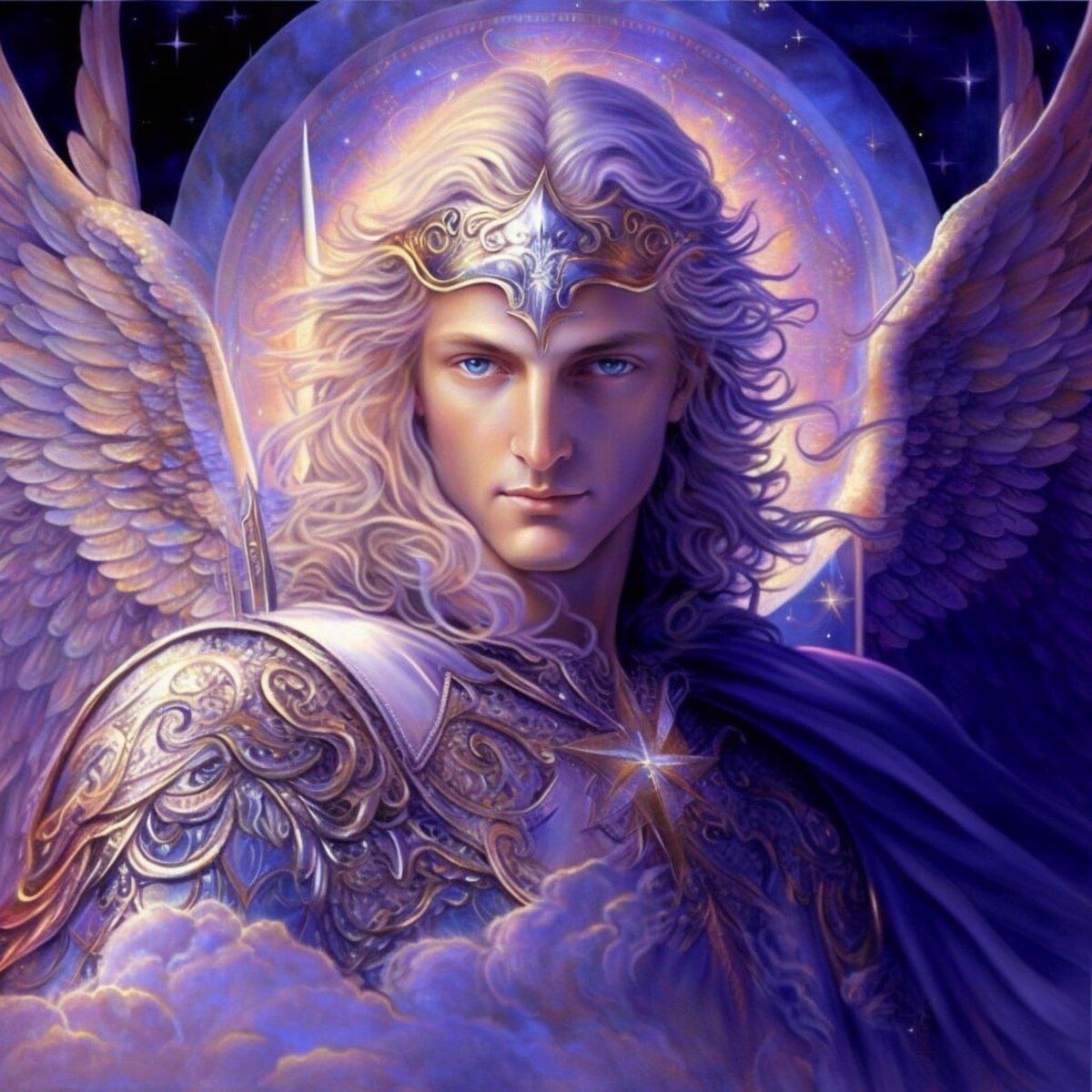
Every culture has its way of interpreting and personifying the enigma that is death. Azrael celebrated as the Celestial Guide of Souls, is one such embodiment that holds deep spiritual significance. Let us explore the profound realms of Azrael's symbolism, essence, and how this archangel reshapes our view of the ultimate transition.
Azrael Unveiled
Tracing Azrael's Roots
Emerging from the depths of age-old traditions, Azrael stands as a beacon, guiding souls across various religious landscapes. His aura is enigmatic, and while many aspects of his existence are cloaked in the shadows of time, his prominence as the celestial usher of souls remains steadfast.
Duty and Essence
As the spiritual shepherd of souls, Azrael navigates them from the tangible world to the spiritual beyond. Far from being a figure of dread, Azrael is seen as a comforting presence, illuminating the path and assuaging fears about the inexorable nature of mortality.
Azrael’s Spiritual Footprint in World Religions
Azrael's Embrace of Islam
In the Islamic tapestry, Azrael is revered as a benevolent entity, guiding souls with empathy and grace from the confines of mortality. The Quran paints him as a figure of authority yet imbued with profound fairness and dedication to his divine role.
Whispers of Azrael in Christianity
While the Bible remains silent on naming him explicitly, echoes of Azrael resonate in the Apocryphal writings. Here, he emerges as a celestial bridge, seamlessly connecting life's ebb with the flow of the afterlife.
Azrael in the Judaic Mystique
Delving into Jewish esoterism, particularly within Kabbalistic paradigms, Azrael is both a harbinger of endings and new beginnings. This dual role underscores life and death's intricate dance, emphasizing their interconnected rhythm.
The Artistic and Symbolic Soul of Azrael
Visual Narratives
Azrael's depictions over eras have varied, yet he is often visualized as a veiled entity, wielding either a grand scythe or a tome, chronicling the destinies of souls.
Metaphorical Resonance
In spiritual circles, Azrael symbolizes rejuvenation, metamorphosis, and the undying belief that death is not a cul-de-sac but a gateway to an altered state of consciousness.
Azrael’s Imprint on Contemporary Consciousness
Echoes in Art and Expression
Azrael's essence has found voice in myriad works of literature, cinema, and digital art. Whether as a serene guardian or an avatar of balance, these renditions mold our collective psyche, offering fresh perspectives on this timeless archangel.
Sculpting Perceptions of the Great Beyond
Through myriad artistic mediums, Azrael gently recalibrates societal attitudes towards death, casting it in a more empathetic light and underscoring its role as a vital chapter in the saga of existence.
Communing with Azrael
Visions and Revelations
In profound moments of introspection or during dreams, there are those who feel a connection with an entity they intuitively identify as Azrael. These poignant experiences often bestow a deep-seated tranquility and a renewed relationship with one's ephemeral nature.
Transcending Mortal Fears
Contemplating Azrael's role and the energies he embodies can be instrumental in helping souls reconcile with death's enigma. Countless souls have found serenity and comprehension in Azrael's embrace by perceiving it not as a terminus but as a transition.
In Conclusion
To truly fathom the depth of Azrael, the Celestial Guide of Souls, one must journey through ancient scriptures, diverse religious interpretations, and the multifaceted cultural nuances surrounding this archangel. As a beacon of transition and the eternal guide of souls, Azrael's presence beckons us to perceive death as not a conclusion but a continuation of the cosmic dance of existence.
FAQs
Who is Azrael? Revered across numerous spiritual traditions, Azrael is often acknowledged as the Celestial Guide of Souls, ushering the departed toward the afterlife.
How do religions perceive Azrael? From Islam and Christianity to Judaism, Azrael is consistently viewed as a compassionate guardian dedicated to his divine mandate.
What are the symbolic facets of Azrael? Azrael embodies concepts of rebirth, transformation, and the perspective that death ushers in a new phase of consciousness.
How does Azrael shape our death narrative? Through myriad artistic and cultural portrayals, Azrael nudges society to embrace death as an intrinsic and transformative segment of life's odyssey.
Is it possible to commune with Azrael? Numerous individuals have recounted profound experiences, often in dreams or meditative states, where they felt a deep connection with an entity resonating with Azrael's energy, leading them to inner peace and understanding about life's impermanent nature.
